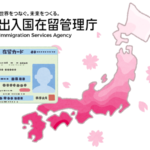
If you look at blogs on the internet or on Youtube, you’ll see that there are quite a few people who are thinking about moving overseas, and the reasons for this can be roughly divided into the following three categories.
1)People who are thinking of moving abroad due to the stagnation of Japanese society
2) People who want to move to a country where the cost of living is cheaper for their retirement
3)people who are married to a foreigner and are thinking of moving to their partner’s home country.
1)Those who are thinking of emigrating for the above reasons are pessimistic about the future of Japan’s economy, which is shrinking and declining, and are trying to take advantage of opportunities in a growing country. They may be longing for “somewhere other than here,” but they seem to think positively about emigration.
2) People who want to move to a country with low cost of living because they might become “old people in the lower class” if they only have a pension.
In my parents’ generation, they were able to make a decent living with only a pension, but nowadays it is difficult to live comfortably with only a pension without some financial assets. So, these are the people who want to move to a country where the cost of living is as low as possible to get a comfortable life.
3)are people whose spouses wish to live in their home country and decide that they too should emigrate in terms of 1) and 2)
I fall into 3). If I hadn’t been married, I wouldn’t have thought about moving to a foreign country. Japan has had natural disasters like earthquakes and other problems, but overall I think it’s a good country, and after all, it’s the country I was born and raised in, so I feel safe.
There are also economic reasons to consider emigrating.
The average Japanese pension (180,000 to 230,000 yen per month) is in the upper middle class in the Philippines.
The minimum daily wage in Metro Manila is about 500-550 pesos (1,100-1,210 yen), and in Central Visayas, where Cebu Island is located, it is 320-400 pesos (704-880 yen), about an eighth of Japan’s wage. It is about 20,000 to 30,000 yen per month, so I think it is more generous than living in Japan. However, Japan is in deflation and the Philippines is on an inflationary trend, so I don’t know how long I can live at that level considering the exchange rate.
Moreover, not everything is cheaper than Japan. Restaurants in shopping malls are as expensive as in Japan or more expensive than in Japan, and the same goes for home electric appliances and cars, so I think it is cheaper in deflationary Japan.
With that in mind, I’m thinking that I need to think about ways to earn an income other than a pension after I move.









